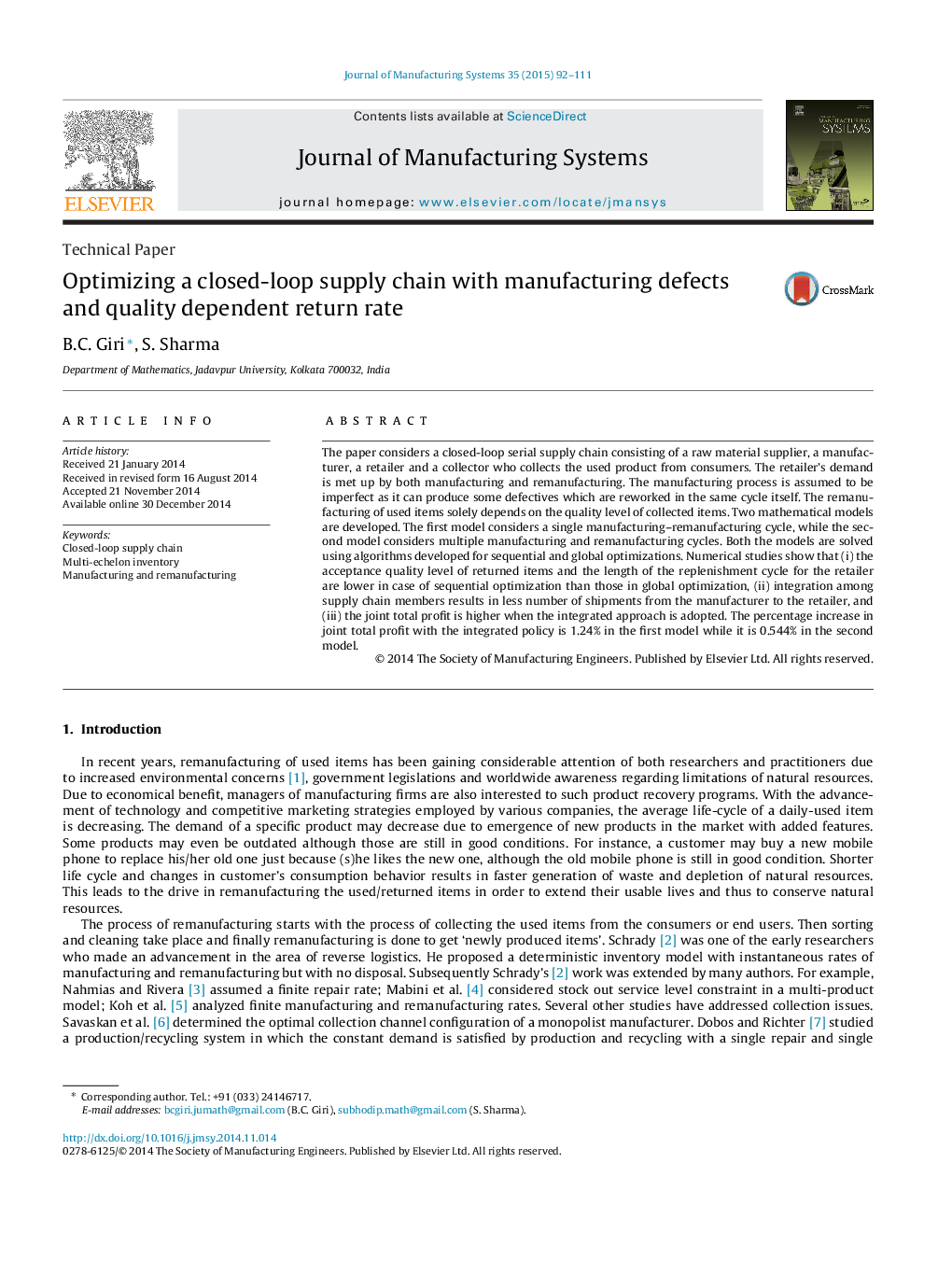| Article ID | Journal | Published Year | Pages | File Type |
|---|---|---|---|---|
| 1697493 | Journal of Manufacturing Systems | 2015 | 20 Pages |
•A closed-loop (green) supply chain is considered in which the used items are remanufactured and thereby environmental concerns are addressed.•System is modeled for both single and multiple manufacturing and remanufacturing cycles.•Imperfectness in manufacturing and its recovery are taken into account.•Centralized and decentralized policies are derived.
The paper considers a closed-loop serial supply chain consisting of a raw material supplier, a manufacturer, a retailer and a collector who collects the used product from consumers. The retailer's demand is met up by both manufacturing and remanufacturing. The manufacturing process is assumed to be imperfect as it can produce some defectives which are reworked in the same cycle itself. The remanufacturing of used items solely depends on the quality level of collected items. Two mathematical models are developed. The first model considers a single manufacturing–remanufacturing cycle, while the second model considers multiple manufacturing and remanufacturing cycles. Both the models are solved using algorithms developed for sequential and global optimizations. Numerical studies show that (i) the acceptance quality level of returned items and the length of the replenishment cycle for the retailer are lower in case of sequential optimization than those in global optimization, (ii) integration among supply chain members results in less number of shipments from the manufacturer to the retailer, and (iii) the joint total profit is higher when the integrated approach is adopted. The percentage increase in joint total profit with the integrated policy is 1.24% in the first model while it is 0.544% in the second model.
